How can anxiety affect your sleep
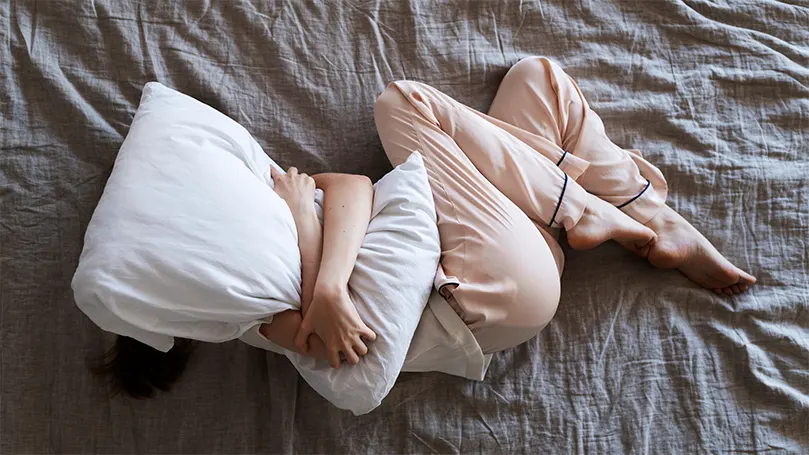
We asked a licensed psychotherapist, and founder of Transformative Mindset, Amber Weiss all the ways anxiety can affect sleep. They said the following: “Anxiety can affect your sleep in a variety of different ways. It may be challenging to fall asleep while your mind is racing. Additionally, many people experience sleep anxiety, where they fear the possibility of not being able to fall asleep or get enough sleep. Sleep anxiety impacts your ability to fall asleep. Anxiety may also cause you to experience vivid and/or stressful nightmares. People may force themselves to stay up in order to avoid the possibility of having a nightmare. “
Now let's break that down, one by one. First off, sleep anxiety. When you're in bed but your mind is running at a hundred miles an hour, your body is bound to start pumping out cortisol (the stress hormone). And this is rather significant, as stress hormones are used to keep us alert and on our toes, which is far from ideal when trying to fall asleep. And if the strain on your nervous system wasn't enough, your blood pressure also spikes to make things even more difficult.
Secondly, anxiety makes an already bad experience, nightmares, even worse. And since nightmares also wake you up, your sleep quality is bound to suffer. But probably the worst part is that bad sleep quality can then make you more anxious the following day! This then starts a vicious cycle where anxiety doesn't allow you to get good sleep, and bad sleep gives you anxiety.
This is why general anxiety disorders are commonly tied and can even cause sleep disorders such as insomnia and nightmares. So, knowing how to deal with your anxiety and avoid having nightmares, as well as bettering your sleep hygiene are all essential skills.
What can cause anxiety at night?
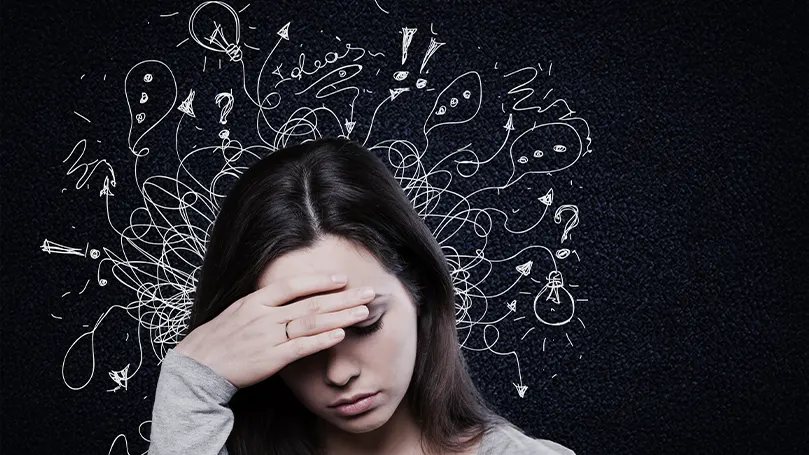
Unfortunately, there are quite a few triggers that can cause anxiety at night. Everything that you do during your waking life can cause stress and anxiety later down the line if you don't have systems in place to deal with the negative parts of life. Be it a school project, job security, your love life, or your self-image, there are many situations that can lead to racing thoughts at bedtime. After all, this is when we're left with our thoughts and typically “digest” the day.
And some people simply live lives that are littered with chronic stress. There are always deadlines, issues, and unpleasant conversations. This leads to situations where people are simply too stressed to sleep. However, this doesn't mean that you're helpless in all of this. After all, while you can't control what happens to you during the day, you do get to choose how you'll react to it.
So, we're going to go over a few tips and methods for taking the load off your mind and creating a more relaxing evening atmosphere. That being said, we also want to acknowledge that some issues might seem too big for you to take on alone. In these cases, having a therapist gently nudge you in the right direction or provide much-needed medication is the best way to take a step forward.
Ways to calm anxiety at night
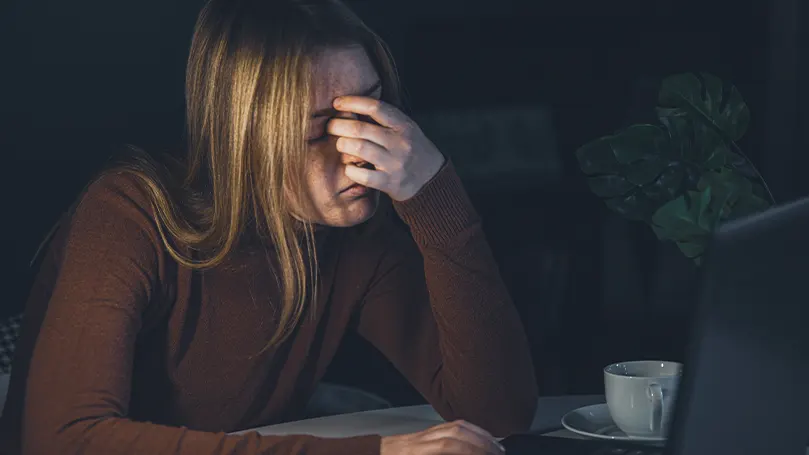
If you want to fall asleep faster, and generally have a much less stressful life, knowing how to ease anxiety before bed is essential. And while this topic is a bit more complex than we're leading on, and not every solution we've come up with will work for everyone, it's worth a try!
So, based on everything we at The Sleep Advisors know, here are eight ways you can ease your anxiety before bed – and hopefully, get some much-needed rest.
1. Establish a consistent sleep routine
Establishing a good and consistent nightly routine is one of the best things you can do for your mental health and your sleep quality. That might seem hyperbolic but there's concrete science behind this claim! And it all has to do with your biological clock or circadian rhythm.
To oversimplify, your circadian rhythm is like a timesheet for different hormones in your body. It dictates when you should be energized and awake, and when you should wind down and go to bed. Said timesheet mostly goes off certain cues, like light and a change in temperature.
However, our modern lifestyle can make it slightly inaccurate. Since we have lights all around us and can change the temperature inside when we see fit, our bodies can have a hard time keeping up. However, a consistent evening routine can make this less of an issue.
This is because if you go to bed at the same time every night, your body will simply “get in the groove”. That way, it will have a simpler time transitioning from the sleep to wake phase and the other way around. This in turn then means that even though you might be anxious, you can fall asleep out of habit! So, start thinking of a good bedtime routine and reap the benefits! And if you need some help, here are some tips for creating the best bedtime routine.
2. Focus your energy
If the previous tip felt too general for your liking, this one should be more up your alley. Specifically, we'd like to focus on two things – keeping your mind clear and adding structure to your day.
First off, white noise. If you're the type of person who tends to obsess and think about every single bump in the night, playing white noise can help drown them all out and give you more peace of mind. Plus, since you won't be left in complete silence, it might be easier to keep your thoughts from going all over the place. You can either get a good white noise machine or even play it through an app on your phone.
Research suggests that white noise makes for a good sleeping aid. Therefore, it could be the thing you need in order to fall asleep more quickly and with less effort. However, if you're more of a visual type, you have other options.
For one, writing a to-do list. This can make it so your day seems more structured. It will give you a better sense of control and hopefully, helping calm you down a bit. And if you've already segmented the following day and allocated sufficient time for each task, you're also less likely to say up at night wondering whether you'll meet all your deadlines.
In this same category, we'd also like to include keeping a dream journal. These can help you avoid nightmares, and can even induce lucid dreaming in some cases. And if all else fails, find artwork that makes you feel calm and serene. Hang it somewhere near your bed to get that little boost of insurance..
3. Relaxation techniques
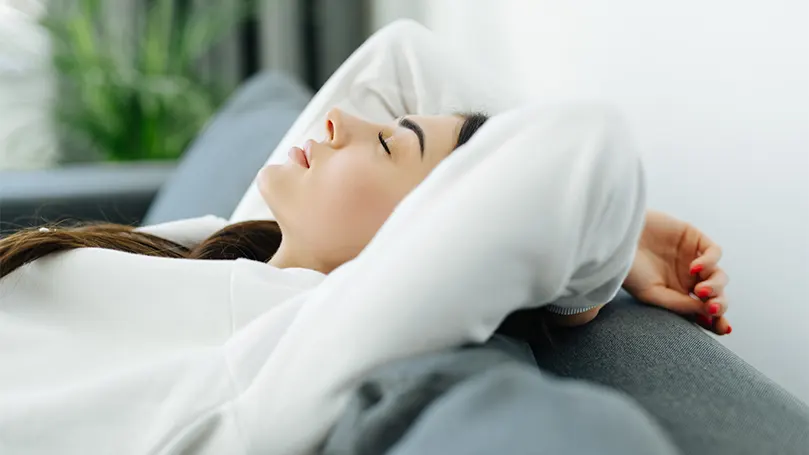
This tip refers to all the techniques you can use to calm yourself down when you're already feeling anxious. They can also get you in a good mood so that anxiety is less likely to take hold.
Of course, the most obvious and arguably most effective technique in this category is proper breathing. As cliche as it sounds, deep breathing can help out quite a bit. Not only does it shift your focus but as you exhale slowly, it can often feel like a burden is being lifted from your shoulders. This is why it's a staple when creating a relaxing nighttime routine. You can even throw in some light aerobics to feel even more relaxed.
In a similar category, you have progressive muscle relaxation. As the same suggests, this means relaxing each muscle group in your body, one by one, so that you don't feel so tense. Some people even take a warm bath before falling asleep in order to feel extra loose! Just make sure that it's not too hot. Your body temperature can't get too high if you want to fall asleep quickly.
4. Avoid caffeine and alcohol

This one might seem obvious to some but it still needs to be said. Drinking coffee before bed is one of the best ways to keep yourself awake. And while you're jittery, trying to figure out how much sleep you'll get if you fall asleep right now, anxiety is bound to rear its ugly head.
However, it's also worth pointing out that coffee isn't the only thing you should take note of. Things like chocolate and even tea can also have a significant amount of caffeine! So, take note of what you eat before bed and make sure that it's not full of caffeine.
And when it comes to alcohol, things are arguably even more serious. Although it can sometimes help you fall asleep, alcohol affects sleep in a very negative way in the long run. If you were having a bad day, alcohol can make you feel even worse. Also, being anxious about possibly throwing up isn't going to help you get rest either. So, as a rule of thumb, don't consume caffeine after 3 pm and make sure that you're completely sober by the time you go to bed.
5. Improve your sleep environment
When it comes to good sleep hygiene, some factors are more obvious than others. For example, you might already know that getting good soundproofing is important, as noisy neighbours can make you stay up all night. Or that getting the best blackout curtains will make the city lights less distracting. But when it comes to your mental health, there are a few less obvious examples.
Firstly, make your bed a “sleep only” zone. Working from your bed or even lying on it while you scroll through social media can tie it to anxiety. We associate places with emotions constantly and having your bed in the same category as “I have an exam tomorrow” or “I just read about a tragic accident” is less than ideal.
Furthermore, if you can bring harmony to your bedroom, do so. This means decluttering as much as you can and keeping it clean. For some, going for a minimalistic bedroom design can also help make it feel more calming and serene. Or it can be as simple as having the best mattress you can find so that you feel as comfortable as possible. But the bottom line is that you should feel refreshed and calm once you get into bed, not anxious.
6. Limit screen time
This one loops back to a few of the tips we've already mentioned and can make for the most immediate fix. And this is because screen time can affect us in two major ways.
On a physical level, blue light causes our circadian rhythm to get slightly off-track, making us feel awake even when we're supposed to be sleeping. And as we've established so far, being wide awake when it's past your bedtime is an excellent way to bring anxiety into the mix.
And on a mental level, it's arguably even more impactful. If you were watching TV before bed and happened to catch a horror film, you might end up jumping at every sound for a few hours. Or on the other hand, you could get into a fight with someone on social media and be too pumped up and aggravated to go to sleep. And, of course, if you happen to read about something disturbing, we can't blame you for feeling anxious.
But how do you fix all of this? Well, for the physical symptoms, just substitute screen time with reading time. After all, reading before bed makes for a very good bedtime routine! And if you can't commit to that, put your devices into night mode or get blue-light-blocking glasses to minimise the effect they have on your circadian rhythm.
And as far as your mental health is concerned, simply be careful of what you consume before bed. Instead of reading the news, watch your favourite show or just look at some cute animals! After all, the internet has just as much anxiety-relieving content as it does anxiety-inducing stories.
7. Exercise regularly

Regular exercise can do wonders for your sleep, your mental health, and your overall well-being. Being physically active can tire you out so you naturally fall asleep at night and seeing the fruits of your labour in the mirror is always a nice mental health boost.
Plus, it can help take some of that negative energy in your head and “purge” it during the workout. However, as Amber Weiss points out: “Exercise regularly but be sure not to do this at least 2-3 hours before you are ready to go to sleep“. This is once again because of your body temperature, and you can read more about how exercise before bed affects sleep right here.
But if you can get some exercise at least 3 times a week, you're bound to see results in the long run. Just don't compare yourself to others and remember that this is about your health and not some superficial beauty metric.
8. Speak to a doctor
As we've mentioned in the beginning, sometimes getting a doctor or mental health professional involved is your best course of action. Yes, some of our tips might help you calm anxiety at night naturally but that isn't always the case. If you have an underlying condition that causes anxiety, for example, PTSD, getting proper treatment options is essential for recovery.
And in terms of mental health, some issues simply might feel too big and overwhelming to tackle on our own. So, having a professional who knows your personal circumstances tell you how to calm down anxiety at night might lead you to success.
There is no single “how to calm anxiety at night fast” fix that will work for everyone. So, get in touch with mental health professionals or doctors and see how they can help you fight your demons.
Conclusion
Getting a good night's sleep can be very difficult when anxious thoughts are running through your head. Anxiety disorders are all too common and most of us don't know how to properly deal with them. But now that you know the possible triggers and how to calm anxiety at night, we hope that you can conquer your demons and get plenty of rest!
What we also would like to recommend is to check some of the best weighted blankets that are known for helping with anxiety as well. And if you feel anxious on a constant basis, you can find a list of mental health hospitals here or even look at some of the online therapy options (if that feels more comfortable).

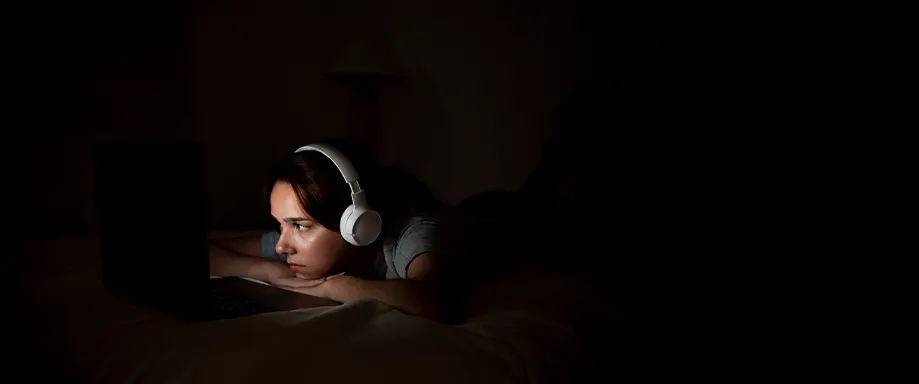

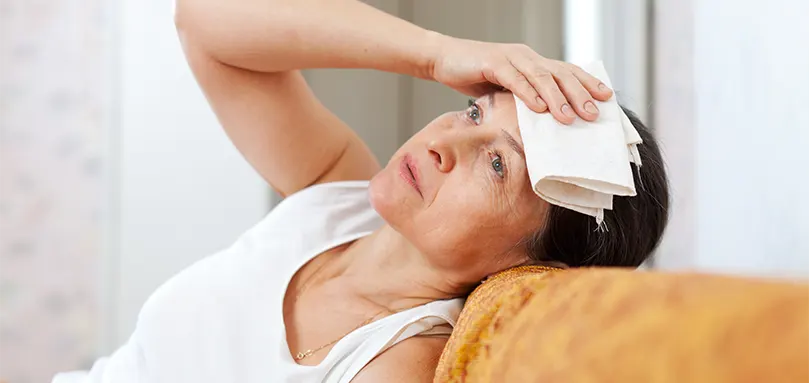













There are no comments yet
"*" indicates required fields